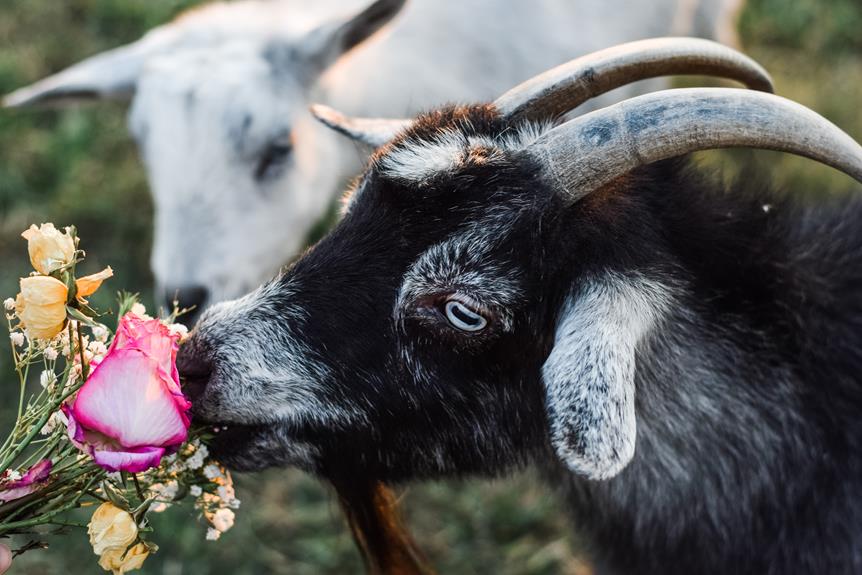Are you ready to take your health to new heights?
Eating goat blood has been a staple of some cultures for centuries, but it's not without its risks.
From adverse reactions to long-term health concerns, this article is an essential exploration of the side effects of eating goat blood.
Get ready to unlock the potential of a healthier lifestyle and learn about the hidden dangers of this powerful dietary choice.
What Are the Risks of Eating Goat Blood
Eating goat blood comes with certain risks, so it's important to be aware of them. Discovering goat blood sources and taking proper handling precautions are key.
Eating raw or undercooked blood may contain harmful bacteria, parasites, or toxins, putting you at risk for infection or food poisoning. Unpasteurized blood may contain contaminants or heavy metals which can cause serious side effects.
In some cases, consuming too much goat blood may cause anemia or vitamin deficiencies. It's essential to research sources and take precautions before consuming goat blood.
What Are the Signs of an Adverse Reaction
If you've consumed goat blood, it's important to watch out for any signs of an adverse reaction, such as nausea, vomiting, abdominal pain, or fatigue.
Healthy alternatives, such as vegan or vegetarian meals, can help ensure your food safety. Be mindful of any unusual symptoms, like hives, swelling, difficulty breathing, or a rapid heartbeat.
Food safety is essential, so take care to choose healthy alternatives and monitor your body to stay safe.
How Can You Prevent Negative Side Effects
To prevent negative side effects, you should always research the nutritional value and safety of any food you consume.
Eating goat blood can have adverse reactions, so it's important to look for safe alternatives that still honor your cultural traditions.
Opt for dietary options that provide full nutritional benefits, while ensuring you won't have any unforeseen side effects.
Choose foods that are best for your health and well-being, so you can enjoy the traditions of your culture with confidence.
What Types of Medical Treatment May Be Necessary
If you experience any side effects from eating goat blood, it's important to seek medical treatment right away. Early diagnosis and treatment can be essential for avoiding long-term health complications. Seeking medical help right away can help you to achieve a full recovery and protect your health.
Common treatments for negative side effects include:
- Tests for bloodborne and foodborne illnesses
- Treatments to counter any identified infections or illnesses
- Medications to reduce inflammation
- Dietary adjustments to strengthen immunity
Are There Any Long-term Risks of Eating Goat Blood?
Eating goat blood may have long-term risks, so it's important to be aware of them.
Cultural implications of consuming goat blood should be taken into account.
Nutritional factors, such as iron, zinc, and Vitamin B12, can be beneficial but their effect may be limited when consumed in large quantities.
Long-term effects of consuming goat blood can include digestive problems, anemia, and cardiovascular disease.
It's important to research goat nutrition thoroughly before consuming the blood to ensure that you understand the risks and benefits.
Frequently Asked Questions
Is It Safe to Eat Goat Blood?
It is generally safe to eat goat blood, though it may have some dietary implications. Consider the consumption safety carefully before deciding to add it to your diet. Be aware that there may be side effects to consider.
Does Eating Goat Blood Have Any Nutritional Benefits?
Like a multi-vitamin, goat blood is packed with probiotic benefits. Its culinary uses are as varied as they are delicious, offering a nutrient-rich addition to any meal. From a liberation perspective, goat blood can provide essential nutrients that may otherwise be difficult to obtain.
Are There Any Religious or Cultural Restrictions Associated With Eating Goat Blood?
You may have spiritual or religious restrictions when consuming goat blood. Many cultures perform rituals before consuming it, while others believe it violates their spiritual beliefs. Respect these restrictions and be mindful of their importance to those around you.
Can Eating Goat Blood Cause Any Food Allergies?
It's like navigating a maze of gut health and food preferences: eating goat blood can trigger food allergies. Keep an eye out for signs of discomfort, and be mindful of your food choices for optimal liberation.
Is There Any Risk of Contamination From Eating Goat Blood?
You could be at risk of contamination and disease transmission from eating goat blood. Be mindful of where it comes from and how it was prepared to ensure safe consumption.
Conclusion
Eating goat blood has known risks, but if you take the proper precautions, the side effects can be minimized. In fact, research has shown that it can even provide health benefits.
However, it's important to be aware of the potential for adverse reactions and to get medical treatment if necessary.
Ultimately, the decision to consume goat blood is yours, but understanding the potential risks can help you make an informed decision.






